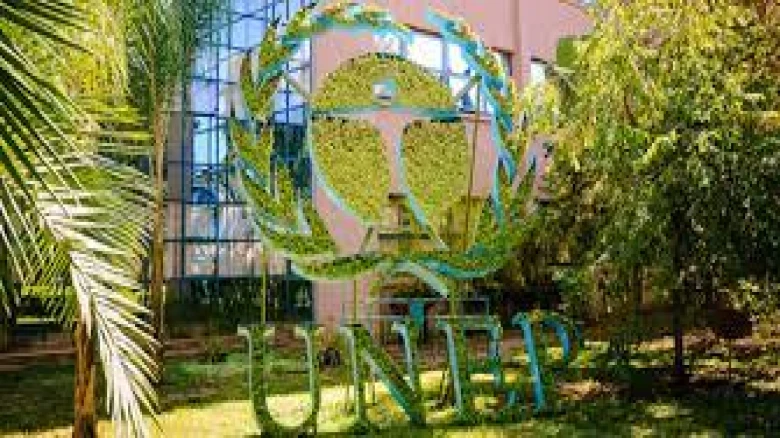National

Norway and UNEP have had a comprehensive framework agreement for programme cooperation in place since 2006. Since 2015, the agreement has worked to promote developing nations' efforts to achieve the Sustainable Development Goals. The total dollar worth of these agreements from 2006 to 2021 was US$ 141 million.
Digital Desk: Since the
United Nations Environment Programme (UNEP) was established as a result of the
Stockholm Conference in 1972, its Member States have provided the organization
with policy, programming, and financial assistance. As UNEP celebrates its 50th
anniversary in 2022, one Member State, Norway, is fortifying ties by signing a
new collaboration deal worth about US$ 53 million (NOK 520 million).
For UNEP to carry out
its work programme and address new environmental concerns, core and flexible
funds are essential. In order to address the triple planetary crises of climate
change, nature and biodiversity loss, pollution, and waste, it enables UNEP to
continue innovating and providing high-quality science and policy support.
Inger Andersen,
executive director of UNEP, said, "We at UNEP are very appreciative for
the unwavering support that we have received from Norway over the past few
decades." "We view our close working relationship as a testament to
the significance of our mission and to Norway's confidence in UNEP's capacity
to address the triple planetary catastrophe. With the help of this new
agreement, UNEP thematic funds will get much-needed money as they work to
stabilize the climate, live in peace with the environment, and transition to a
world without pollution. This funding will help UNEP grow so that we can better
serve both people and the environment.
UNEP has been keeping an
eye on the condition and well-being of the environment for five decades,
setting the global environmental agenda and assisting in determining the best
course of action to address environmental issues. This initiative encourages
lawmakers and policymakers worldwide to base their decisions on facts and data
in order to advance all facets of sustainable development. In order to help
countries fulfil their environmental commitments and aspirations under
international accords, UNEP collaborates with other organizations and plays a
key role in coordinating efforts.
The past 50 years have
also seen the environment at the centre of Norwegian policy. This year marks
the 50th anniversary of the Norwegian Ministry of Climate and Environment, much
like UNEP.
Norway's domestic
priorities include the transition to a green economy, sustainable land and
ocean management, and achieving the Paris Agreement's climate goals. At the
international level, Norway is working to protect tropical forests and reduce
plastic waste. It also promotes an effective system of environmental
governance.
In the 1970s, the nation
began collaborating with UNEP on environmental laws, norm-setting, programmes,
and campaigns. It has backed several important UNEP initiatives, including
advancing gender equality, building a more environmentally friendly UN system,
protecting the environment in post-conflict situations, and strengthening
evidence-based policy making through environmental monitoring and assessments
like the Global Environment Outlook.
The work on plastics and
marine debris has also received the early support of Norway, which contributed
to the global evaluation of marine plastic pollution and litter by UNEP, From Pollution
to Solution. A landmark resolution to stop plastic pollution and create a
global legally enforceable accord by 2024 was endorsed in Nairobi, Kenya, at
the UN Environment Assembly's fifth session (UNEA-5.2), which was hosted by
Norway. The resolution covers the entire plastic lifetime, including its
creation, use, and disposal.
At UNEA 5.2, a total of
14 resolutions were adopted that dealt with a variety of topics, such as the
prudent management of chemicals and waste, natural solutions, biodiversity, and
health.
Espen Barth Eide, the
president of UNEA-5 and the minister for climate and the environment of Norway,
remarked at the gathering, "Against the backdrop of global uncertainty,
the UN Environment Assembly displays multilateral cooperation at its best.
"Pollution from plastics has become a worldwide problem. With today's
decision, the search for a cure is now assured.
We strongly value UNEP's
important position as the leading worldwide authority on the environment, which
is why we reached this substantial agreement on flexible finance.
Norway and UNEP have had
a comprehensive framework agreement for programme cooperation in place since
2006. Since 2015, the agreement has worked to promote developing nations'
efforts to achieve the Sustainable Development Goals. The total dollar worth of
these agreements from 2006 to 2021 was US$ 141 million.
Inger Andersen and Brd
Vegar Solhjell signed a new deal on July 1, 2022, for about $53 million, with
the intention of strengthening UNEP and enabling the successful implementation
of its Medium-Term Strategy (2022-2025).
Norway has regularly
ranked among the top 15 contributions to the Environment Fund, the main source
of flexible funds for UNEP, since 1973.
Leave A Comment